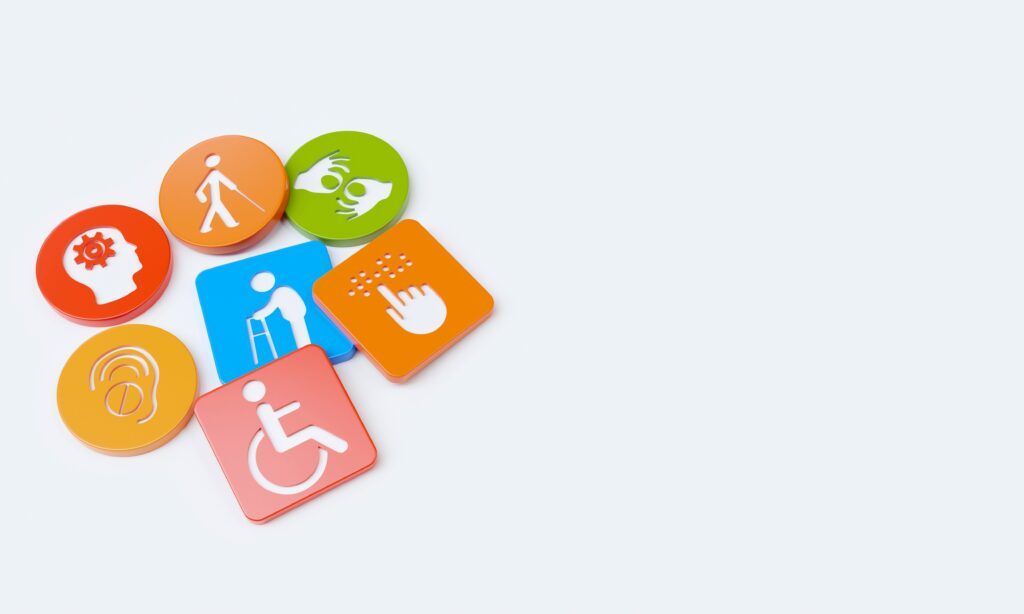Beyond Appearances: The Truth About Invisible Disabilities

Think about a moment you or someone you know were circling a parking lot, trying to find a spot. Perhaps one of the spots near the front reserved for those with disabilities is still open, though you don’t park there, of course, because you are a good person and understand that it is reserved for someone who needs it. Now imagine you see a car pull up to the disability spot and park, though the person who steps out of the car doesn’t “appear” to be disabled at all. They are not elderly and have no issues walking. Or, imagine another scenario in which you’re waiting in the queue line for hours at an amusement park ride, and someone in another group flashes a disability pass and is ushered to the front of the line, though, again, they do not physically look like they should have any issues waiting in line just like you.
What do you do in these circumstances? It is normal to feel frustrated or even angry, believing that this person is lying or taking advantage of the system. However, it is important to remember that invisible disabilities exist.
What exactly are “invisible disabilities”? The term refers to disabilities that are not immediately apparent to others. For example, someone who uses a wheelchair has a visible disability. But someone with bipolar disorder or depression may appear like anyone else on the outside, yet they may struggle with unseen symptoms. They can include everything physical illnesses that may not always express themselves externally, such as cancers, diabetes, or HIV/AIDS. They can also include mental health disorders such as severe depression, bipolar disorder, post-traumatic stress disorder (PTSD), obsessive-compulsive disorder (OCD) and eating disorders.
So why is it imperative to recognize invisible disabilities? First off, it reduces stigma and increases understanding. People with invisible disabilities may be judged or misunderstood by others who don’t comprehend their challenges. It is essential for us to recognize invisible disabilities so that we can create a more supportive and inclusive society and help people get the support and accommodations they need. For example, people with an invisible disability like a learning disability or ADHD may need extra time to complete assignments or tests. People with invisible disabilities may benefit from accommodations such as flexible work hours, time off for medical appointments, or even just a little extra understanding and support from coworkers and friends. In doing so, we can work to provide people with the accommodations they need to succeed.
“Invisible” mental health disabilities are just as real and debilitating as physical disabilities, even if they are not immediately recognizable. By understanding and empathizing with the challenges that people face, we can reduce stigma and provide the support and accommodations that people with invisible disabilities need to thrive. If you or someone you love struggles with these types of challenges, it is important to remember that you are not alone. There are many online resources that can help, including:
- Invisible Disability Project: an educational project that consciously “disrupts” invisibility imposed upon unseen disabilities at the intersections of race, class, gender, and sexuality. They offer resources, services, support groups, and educational material.
- National Alliance on Mental Illness (NAMI): NAMI is an organization that provides advocacy, education, and support for people with mental health conditions and their families. They offer a wealth of resources on their website, including information on specific conditions, local support groups, and online forums.
- The Mighty: The Mighty is a website that publishes articles and resources on various disabilities and health conditions. They have a section dedicated to mental health, with articles on different conditions, personal stories, and resources for finding help.
Remember, it’s okay to reach out for help and support, and Jefferson Center is happy to also offer resources, programs, and services that can help. Call us at 303-425-0300 to learn more.
- Kiara’s Note – Blog
- Mental Health Matters – Blog
- Voices of Hope – Blog
- Humans of Jefferson Center
- Addiction & Substance Use
- Anxiety
- Child Mental Health
- Crisis and Trauma
- Depression
- Exercise
- Just The Facts
- LGBTQIA+ & Pride
- Medicaid
- Men’s Mental Health
- Parenting
- Recovery
- Senior and Older Adult
- Socializing
- Stigma
- Stress
- Suicide Prevention
- Support & Advocacy
- Teen’s Mental Health
- Treatment Options
- Women’s Mental Health